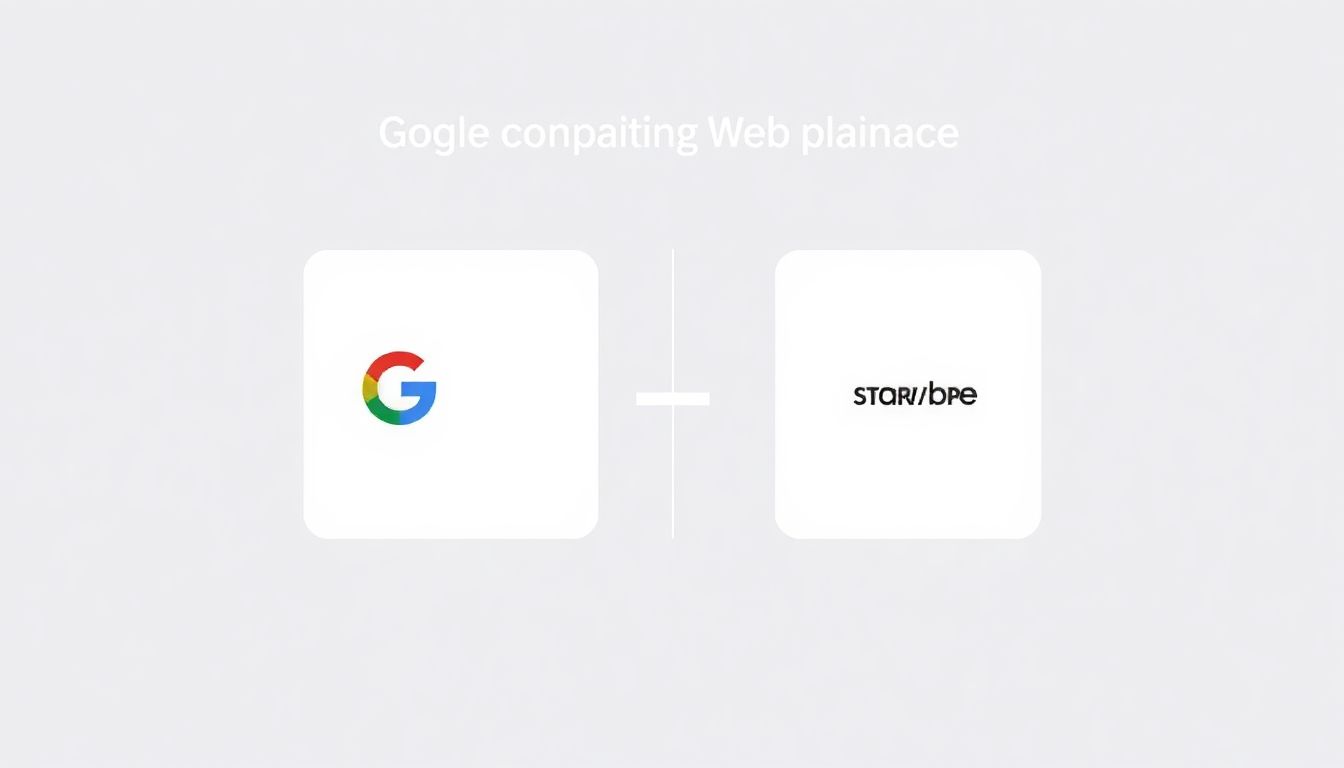
The digital workspace landscape is ever-changing. Businesses must adapt to new tools and platforms for improved collaboration, productivity, and security. With multiple web hosting options available, it’s crucial to understand the differences, especially when comparing Google Workspace to other solutions.
Understanding Google Workspace: A Deep Dive
Core Features and Functionality of Google Workspace
Google Workspace is more than just email. It offers various tools including:
- Gmail for email management
- Google Drive for file storage and sharing
- Google Docs, Sheets, and Slides for document creation
- Google Meet for video conferencing
These applications enhance teamwork and streamline communication. The integration between tools makes it easy to manage tasks from one place.
Pricing Models and Scalability Options within Google Workspace
Google Workspace offers flexible pricing plans, catering to different business sizes:
- Business Starter: Basic features for small teams
- Business Standard: Enhanced storage and collaboration tools
- Business Plus: Additional security and management features
This tiered approach ensures that as your business grows, your tools can scale accordingly.
Google Workspace's Security and Compliance Features
Data security is crucial. Google Workspace provides:
- Two-factor authentication for account security
- Data loss prevention policies
- Compliance with industry standards like GDPR
These features ensure that sensitive information remains protected.
Exploring Alternative Web Hosting Options
Shared Hosting: Cost-Effective but Limited
Limitations of Shared Hosting for Business Needs
Shared hosting is often cheaper, but it comes with drawbacks:
- Limited resources: Multiple websites share the same server, leading to slower performance.
- Less control: You may not be able to install specific software.
- Security risks: More websites on a server can increase vulnerabilities.
Suitable Use Cases for Shared Hosting
Ideal for small personal sites, blogs, or startups with minimal traffic, shared hosting offers a cost-effective entry point.
Dedicated Servers: High Performance, High Cost
Advantages of Dedicated Servers for Large Businesses
Dedicated servers provide:
- Full resource allocation: You don't share with others.
- Customization: You can configure the server to fit your needs.
- Better performance: Higher traffic volumes can be handled efficiently.
Businesses that rely on high traffic should consider this option.
Disadvantages of Dedicated Servers: Complexity and Investment
However, dedicated servers come with challenges:
- Higher costs: Maintenance and setup can be expensive.
- Technical knowledge required: You may need a skilled team to manage the server.
Google Workspace vs. Shared Hosting: A Comparative Analysis
Feature Comparison: Collaboration, Storage, and Security
Google Workspace excels in collaboration tools. With real-time editing and built-in chat features, it’s easier for teams to work together. Shared hosting lacks these integrative tools, focusing primarily on website storage.
Cost Analysis: Balancing Budget and Functionality
While shared hosting is budget-friendly, the trade-off is performance and features. Google Workspace's pricing reflects its advanced collaboration tools and security, which can justify the investment for many businesses.
Scalability and Flexibility: Adapting to Changing Needs
Google Workspace easily scales as teams grow. With shared hosting, upgrading can be more complex and may require downtime.
Google Workspace vs. Dedicated Servers: A Comparative Analysis
Performance Benchmarks: Comparing Speed and Reliability
Dedicated servers generally offer superior performance compared to Google Workspace. However, Google Workspace is reliable for collaborative tasks, ensuring uptime for communication tools.
Security Measures: A Detailed Side-by-Side Comparison
Both options provide strong security, but they do so differently. Google Workspace uses advanced cloud security, while dedicated servers rely on physical security measures, requiring more user responsibility.
Long-Term Cost Implications: Total Cost of Ownership
Dedicated servers might have a higher upfront cost but could save money over time for high-traffic sites. Google Workspace’s subscription model offers predictability in costs with less management hassle.
Choosing the Right Platform: A Practical Guide
Assessing Your Business Needs and Growth Potential
Identify what you need today and in the future. Understand your team size, potential growth, and technology needs.
Considering your budget and technical expertise
Evaluate your budget against the technical knowledge in your team. More complex solutions might require hiring extra help, adding to costs.
Long-term Strategy: Planning for Scalability and Expansion
Think about where you want your business to go. Select a platform that can grow with you, avoiding the need for constant switches.
Conclusion: Making Informed Decisions in the Digital Age
Key Takeaways: Summarizing the Advantages and Disadvantages of Each Option
- Google Workspace: Ideal for collaboration, scalable, but with monthly fees.
- Shared Hosting: Low cost, limited features, good for simple sites.
- Dedicated Servers: High performance for large businesses, but expensive and complex.
Actionable Advice: Choosing the Best Fit for Your Business Goals
Assess your needs before deciding. Focus on what will help your business grow effectively without overspending.
